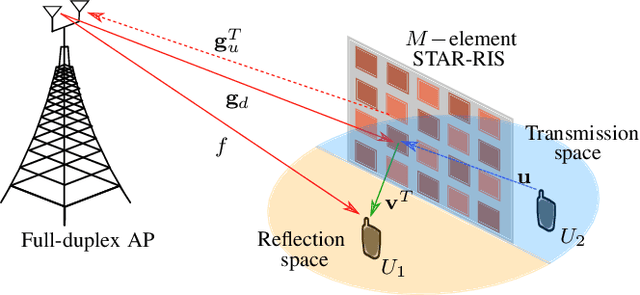Sum Rate Maximization in STAR-RIS Assisted Full-Duplex Communication Systems
Paper and Code
Mar 09, 2022


The sum-rate performance of simultaneous transmitting and reflecting reconfigurable intelligent surface (STAR-RIS) assisted full-duplex (FD) communication systems is investigated. The reflection and transmission coefficients of STAR-RIS elements are optimized for the energy splitting and mode switching protocols to maximize the weighted sum rate of the system. The underlying optimization problems are non-convex, and hence, the successive convex approximation technique has been employed to develop efficient algorithms to obtain sub-optimal solutions. Thereby, the maximum average weighted sum rate and corresponding coefficients at the STAR-RIS subject to predefined threshold rates and unit-modulus constraints are quantified. The performance of the proposed system design is compared with the conventional reflecting/transmitting-only RISs and half-duplex counterparts via simulations where it is observed that STAR-RIS can boost the performance of FD systems.
 Add to Chrome
Add to Chrome Add to Firefox
Add to Firefox Add to Edge
Add to Edge